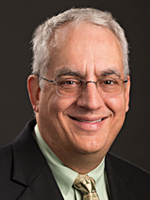April 2022—Asked why he robs only trains, Richard Farnsworth’s Gentleman Bandit in The Grey Fox answers with a truth universally acknowledged: “A professional always specializes.” In line with that conviction, there’s little debate on the value of specialization in medicine—or, as it has evolved more recently, the extraordinary value of subspecialization in anatomic pathology. Many consider subspecialist signout to be the gold standard of review and diagnosis in pathology. Because they are dealing with a small number of pathologies, “the care that subspecialists can provide is phenomenal,” says L. Priya Kunju, MD, director of surgical pathology at University of Michigan Health. But in hospital practice at academic institutions like the University of Michigan, when it comes to time-sensitive frozen sections, subspecialization can have a downside. The need to return a diagnosis of a frozen section within 20 minutes while a surgery is in progress may require that an array of different subspecialists be close at hand, near the operating room.
Read More »April 2022
Lab workforce crisis takes top spot
April 2022—There are sudden crises like the SARS-CoV-2 pandemic. And then there are the simmering crises that can be temporarily overshadowed but inevitably re-emerge to command notice. In New York and in many other states, the decades-long shortage of laboratory staff—especially medical technologists and histotechnologists—has gone from simmer to rolling boil.
Read More »First IQCP template set up for molecular tests
April 2022—Drawing on five years of experience and laboratory feedback, a collaborative team has revised the microbiology IQCP templates and created the first template for the quality control of a commercial cartridge-based molecular test system.
Read More »Supply price hikes now as common as shortages
April 2022—Staffing, supply chain, and significant supply price increases. Two continuing problems and one new. When Compass Group members met online March 1 with CAP TODAY publisher Bob McGonnagle, that trio of issues took center stage. Here’s what they had to say.
Read More »Liver pathology: autoimmune hepatitis, PBC, or overlap?
April 2022—Don’t be afraid of livers. Maryam K. Pezhouh, MD, offered that advice in a CAP21 presentation on autoimmune hepatitis, primary biliary cholangitis, and overlap syndrome, part of a session on common queries in liver pathology. “You don’t need to know everything when you’re looking at the liver,” said Dr. Pezhouh, associate clinical professor of pathology at the University of California, San Diego. “But you need to know what your clinician and your patient are asking.”
Read More »Getting paid: policies, pressures, and a power struggle
April 2022—All things billing, revenue, income, and business-related were tossed around when representatives of four billing companies met online Feb. 14 with CAP TODAY publisher Bob McGonnagle. With them were Vachette Pathology founder Mick Raich and Al Lui, MD, of Innovative Pathology Medical Group, Torrance, Calif. The No Surprises Act, pathologist shortage, pharmacies, and SARS-CoV-2 testing post-pandemic were just some of what came up. Artificial intelligence too. “In the next two or three years, the payers are going to use AI to deny claims,” Raich predicts. “They’re going to know which claims are less likely to be appealed when they’re billed.” And that will only make more difficult an already tough situation. In the past year, says Kyle Fetter of Xifin, “there’s been an increase in the use of the CO-252 rejection/denial code.” Chris Condon of APS Medical Billing agrees, saying the job of the carrier “is to figure out ways to not pay pathologists.”
Read More »The impact of diagnostics on antimicrobial decisions
April 2022—A study published last fall examined antimicrobial prescribing in gram-negative bloodstream infections based on three rapid diagnostic panels and using what’s known as the DOOR-MAT framework. The study’s findings were explained in a CAP TODAY webinar on stewardship interventions to optimize the management of gram-negative bacteremia. It was presented last December and made possible by a special educational grant from BioFire.
AMP case report: ETV6/FLT3 fusion gene detected in a patient with T-cell lymphoblastic lymphoma
April 2022—Genetic alterations of the gene FLT3, especially internal tandem duplications in the juxtamembrane domain and point mutations in the tyrosine kinase domain, are commonly seen in patients with newly diagnosed myeloid leukemias. However, chromosome rearrangements involving the FLT3 gene are extremely rare in hematologic malignancies. The FLT3 gene has only a few known partner genes, including the gene ETV6, which encodes a transcriptional repressor. ETV6 has a wide variety of translocation partner genes, several of which are tyrosine kinase genes.
From the President’s Desk
What you’ll get from the Leadership Summit
April 2022—The end of this month marks the start of one of my favorite CAP events: the Pathologists Leadership Summit. If you’re not familiar with it or haven’t signed up to attend, I’d like to give you a sense of why it’s so important. Back in the early 2000s, I attended what was known as CAP Advocacy School. At that point in my career, I had seen many physicians who felt discouraged, frustrated, and helpless about the state of physician payments and government health care regulations, and I understood those feelings. Advocacy School offered a solution. What struck me about this program was the message that we were not powerless. Through this meeting, the CAP taught me that my government representatives would be interested in what I had to say as an expert physician. I was partnered with Richard Hausner, MD, a seasoned pathologist advocate.
Clinical pathology selected abstracts
- Awareness of donation-related iron depletion among high-risk blood donors
- Performance of surrogate tests for detecting SARS-CoV-2–neutralizing antibodies
Anatomic pathology selected abstracts
- Histological regression in melanoma: impact on SLN status and survival
- CERTAIN study results: use of adjunctive p16 IHC in cervical biopsies
Molecular pathology selected abstracts
- Ability of glioblastoma mutations to alter EGFR dimers to prevent ligand bias
- Impact of prior influenza virus infection on response to influenza vaccination
Q&A column
April 2022
Q. Is it necessary to perform a manual cell count for body fluids, including CSF, using a hemocytometer? Can clinical decisions be made based on low cell counts in body fluid reported by automated cell counters since these instruments have decreased precision and accuracy with low counts? Read answer.
Q. Is there a time limit for a critical value—for example, when a specimen is drawn at 8 AM, the lab receives it at 5 PM (due to courier issues) and has a result at 10 PM, and the value falls in the critical range? Since it is now 14 hours after the draw, the lab value may no longer be actionable. No clinician would act on a critical value that is a week old, so at what point is the lab value no longer considered critical? Read answer.
Q. Given that blood specimen collection tubes are in short supply, many laboratories may need to switch to an alternative collection tube manufacturer. What validation studies are necessary before an alternative collection tube can be implemented? Read answer.
Newsbytes
April 2022—Michelle Stoffel, MD, PhD, supports the use of Excel spreadsheets in some areas of laboratory medicine, but not necessarily as a laboratory workflow tool. It’s a realization she came to when, as a clinical informatics fellow at the University of Washington School of Medicine, she led the charge to revamp the workflow for the immunology laboratory’s Merkel cell antibody panel.
Read More »Put It on the Board
April 2022—Cofactor Genomics announced publication of a study showing that its multianalyte biomarkers based on T cell subtype profiling (TCSP) predicted patient response to anti-PD-1 therapy in three cancers (lung, melanoma, head and neck) and outperformed the indicated PD-L1 test and tumor mutational burden (Schillebeeckx I, et al. Sci Rep. 2022;12[1]:1342).
Read More » CAP TODAY Pathology/Laboratory Medicine/Laboratory Management
CAP TODAY Pathology/Laboratory Medicine/Laboratory Management



